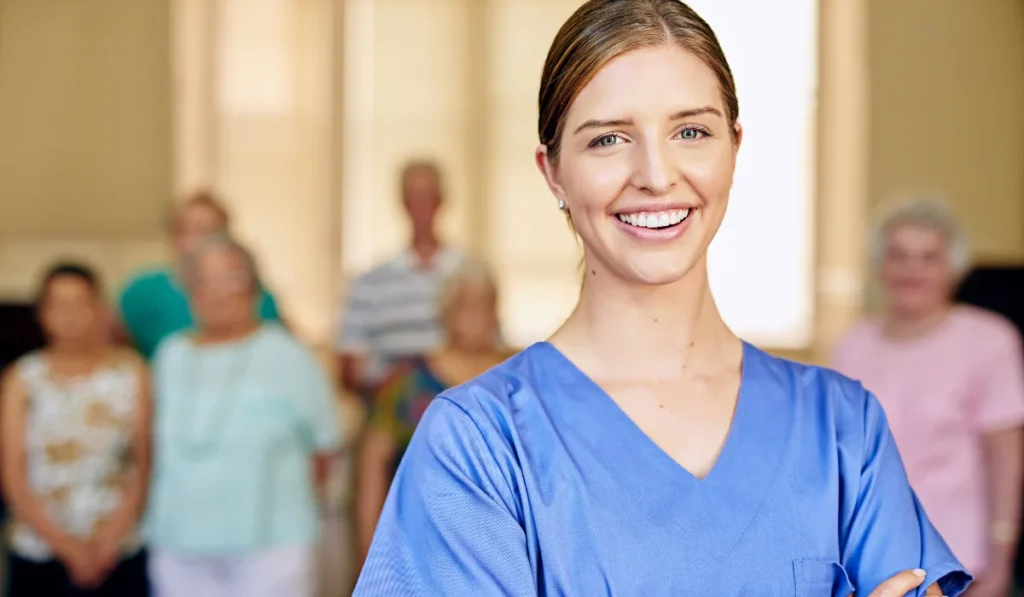
Starting a new career can feel overwhelming, especially if you don’t have experience in the field you’re interested in. But when it comes to home care, many people are looking for meaningful work where they can help others and make a real impact.
Whether you’re looking for a full-time or part-time job, or simply want to support a loved one, becoming a PCA can be one of the most approachable ways to get started in healthcare. But if you’ve never worked in patient care before, you might be wondering: Can you become a PCA with no experience?
Let’s walk through what that process looks like — and what you need to know before taking the first step.
Key Takeaways
- No experience is needed to become a PCA because the job focuses on helping with basic daily care tasks.
- A short training course teaches important skills like bathing, grooming, safe movement, and basic patient communication.
- Basic requirements include being 18, having ID, and sometimes completing background checks or vaccinations.
- You can become a PCA if you speak English or Spanish, and Friends & Family Home Care Services offers training courses in both languages.
- Free training and entry-level jobs are available through agencies like Friends & Family that support new caregivers fully.
Is It Possible to Work as a PCA Without Prior Experience?
Yes, it is possible — and actually very common — to become a PCA with no prior work experience. That’s because the PCA role focuses on non-medical support services. This includes helping patients with everyday tasks like bathing, dressing, eating, or moving safely around their home.
Since PCAs don’t handle medical tasks like a medical assistant or nursing assistant (CNA) would, you don’t need a medical background to get started. However, while no experience is required, training is still necessary to prepare you for real-world job responsibilities.
Here’s how to get started, even if it’s your first time.
1. Find a PCA Training Program
Even if you don’t need previous experience, you do need to complete a PCA training course. In New York City, many home care agencies — including Friends & Family Home Care Services — offer in-person PCA training programs.
These programs typically last 40 hours and cover:
- Basic personal care skills
- Safe patient handling
- Infection control
- Communication and ethics in patient care
Once completed, you’ll receive a certificate showing you’re ready to work.
Some programs may also include internships or hands-on practice to help you feel more comfortable before starting your first job.
2. Meet the Basic Requirements
Even though you don’t need work experience, you still need to meet a few basic requirements to enroll in training or get hired:
- Be at least 18 years old
- Have a valid photo ID and Social Security Number
- Have a high school diploma or equivalent (preferred but not always required)
Some agencies may request a background check and proof of vaccinations like flu shots. These steps are in place to protect patients and ensure a safe working environment.
Speaking English is not a requirement for becoming a PCA, and Friends & Family Home Care Services offers PCA training classes in both Spanish and English.
3. Choose a Home Care Agency That Hires Entry-Level PCAs
Once you’ve completed training, your next step is to find a job.
Not every agency is open to hiring new caregivers, so it’s smart to search jobs with agencies that specifically say they accept entry-level applicants.
Some agencies even offer job alert services where you can sign up for notifications about new openings. Be sure to check if the agency offers full-time, part-time, or flexible shifts, especially if you need to balance work with other responsibilities.
At Friends & Family, for example, we welcome new caregivers and provide extra support as they begin their careers.
4. Learn About Equal Employment Opportunity (EEO) Policies
In New York City, it’s illegal for employers to discriminate based on race, national origin, sexual orientation, gender identity, veteran status, or genetic information. Every applicant must be considered fairly.
Most home care agencies have equal employment opportunity (EEO) statements in their job listings. This means they are committed to hiring based on qualifications and performance — not personal background.
5. Apply and Start Gaining Experience
Once you get hired, you’ll start gaining valuable experience by working directly with clients. Over time, you may choose to continue your education beyond PCA training and become a home health aide (HHA), registered nurse, or even a nurse practitioner.
Start Your PCA Career With Our Free Training Program
You don’t need experience to begin a career in home care — just the right training and support. At Friends & Family Home Care, we offer a free PCA training program, approved by the New York Department of Health, to help you learn everything you need to succeed.
You’ll get hands-on practice with real caregiving skills like bathing, grooming, meal prep, and helping patients move safely around their homes. After training, you’ll be ready to step into a rewarding, in-person role supporting people who truly need your help.
If you’re 18 or older and live in New York, reach out today to start your journey.